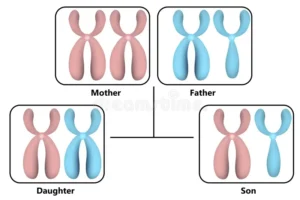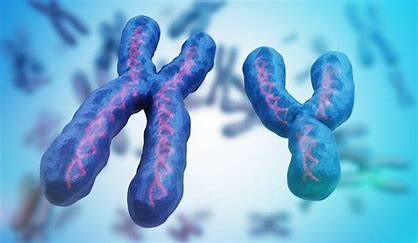Recent research highlights a troubling trend: the Y chromosome, essential for determining male sex, may be on the brink of extinction. A 2022 study provides a glimmer of hope with the discovery of a new male-determining gene in spiny rats. Here’s a closer look at why the Y chromosome is disappearing and what this could mean for the future of humanity.
How the Y Chromosome Determines Sex


In mammals, including humans, females have two X chromosomes, while males have one X and one smaller Y chromosome. Despite its small size, the Y chromosome carries the SRY gene, which is crucial for male development.
Around 12 weeks after conception, the SRY gene activates a genetic pathway that leads to the formation of testes. These testes produce testosterone, which ensures the development of male characteristics. The SRY gene, discovered in 1990, triggers the SOX9 gene, essential for male development across vertebrates.
The Decline of the Y Chromosome
Over the past 166 million years, the Y chromosome has lost a significant number of genes, shrinking from 900 to just 55. This decline, at a rate of about five genes per million years, suggests that the Y chromosome could vanish completely within the next 11 million years.
The X chromosome contains approximately 900 genes with various functions, while the Y has around 55, with only 27 being male-specific. Much of the Y chromosome consists of repetitive ‘junk DNA,’ making it particularly vulnerable to degradation. Unlike the X chromosome, which undergoes genetic recombination to eliminate harmful mutations, the Y chromosome’s inability to recombine accelerates its decline.
Evolution of New Sex-Determining Systems
In species like the platypus, the X and Y chromosomes appear as ordinary chromosomes with equal members, indicating that they were once similar. In some rodent species, such as mole voles and spiny rats, the Y chromosome and SRY gene have disappeared. However, the spiny rats have successfully evolved a new male-determining gene, offering hope for the future.
Professor Jenny Graves, a geneticist, notes that the loss of the Y chromosome could lead to multiple sex-determining systems emerging in different parts of the world. This evolution could potentially lead to the formation of separate human species, fundamentally changing human reproduction.
Implications for Human Reproduction
If the Y chromosome disappears, it could significantly impact human reproduction. Currently, human reproduction relies on sperm and the Y chromosome for male determination. Some species, like certain lizards and snakes, can reproduce without males through parthenogenesis (reproduction without fertilization). However, humans require sperm due to crucial imprinted genes that only come from the father.
While the potential extinction of the Y chromosome raises concerns about the future of human reproduction, some experts believe it may not disappear entirely. Research from 2017 suggests that the Y chromosome’s palindromes and repetitive gene sequences might protect it from further degradation by allowing damaged genes to be repaired.
Ongoing Research and Future Prospects
Scientists continue to study the Y chromosome’s decline and its implications for human evolution. As research progresses, we may gain a clearer understanding of how new sex-determining systems could evolve and how humanity might adapt to these changes.
The Y chromosome’s future remains uncertain, but ongoing scientific investigation offers hope for understanding and addressing this critical issue.








